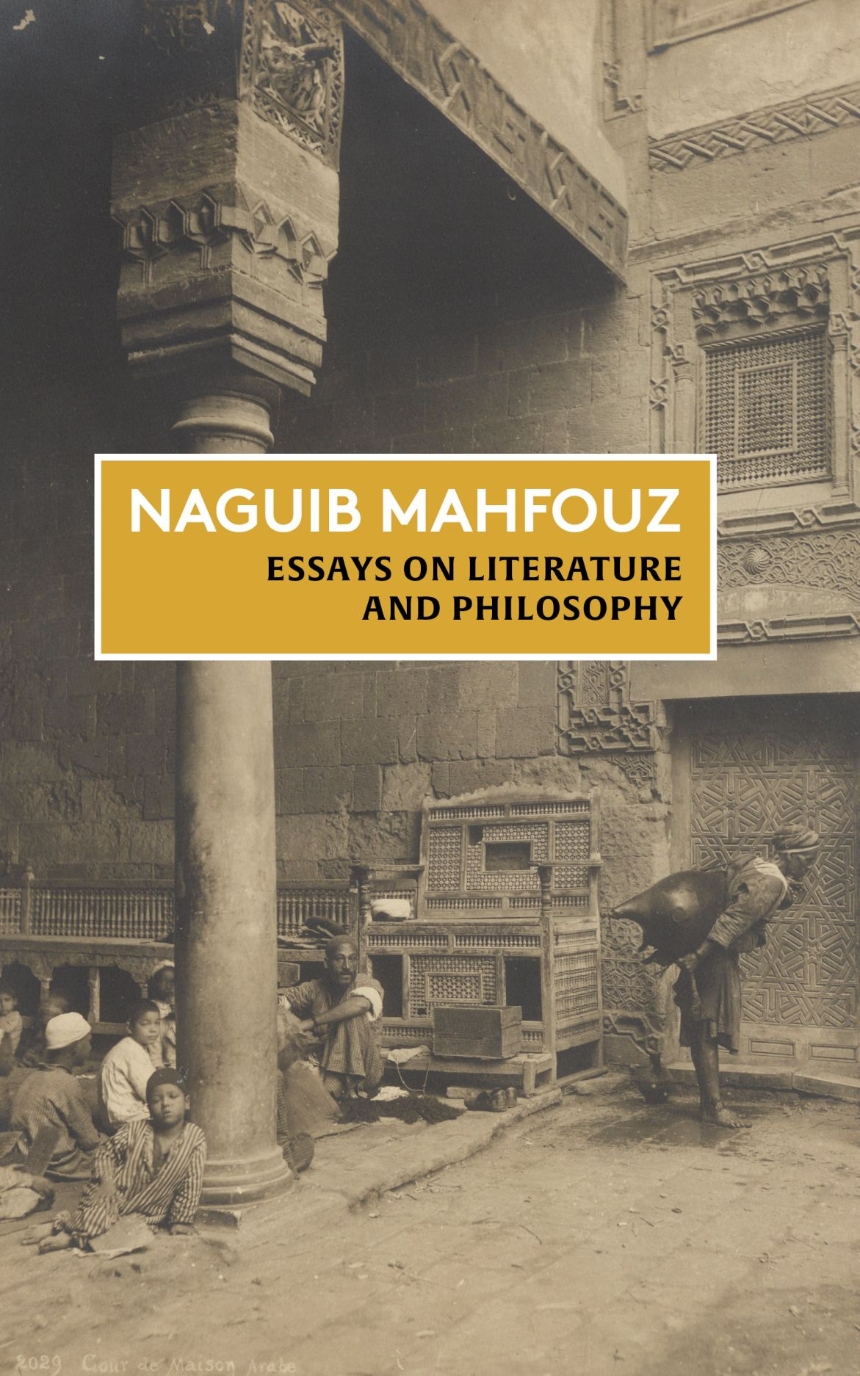9781914983351
9781909942776
9781909942783
Distributed for Gingko
On Literature and Philosophy
The Non-Fiction Writing of Naguib Mahfouz: Volume 1
The nonfiction writing of Naguib Mahfouz, presented in English for the first time.
The first Arabic language writer to win the Nobel Prize for Literature, Naguib Mahfouz, helped bring Arabic writing to an international readership. This collection of his early writing, from his time as a philosophy student, reveals the intellectual ferment of the young author, grappling with two millennia of philosophers and writers and establishing his own voice among them.
Available in English for the first time, these essays tackle a vast array of subjects, from Presocratic Philosophy to love and the sexual impulse. The intellectual development demonstrated here forms the foundation of Mahfouz’s literary work, granting insight into the mind behind such famed works as the Cairo Trilogy and Children of The Alley.
The first Arabic language writer to win the Nobel Prize for Literature, Naguib Mahfouz, helped bring Arabic writing to an international readership. This collection of his early writing, from his time as a philosophy student, reveals the intellectual ferment of the young author, grappling with two millennia of philosophers and writers and establishing his own voice among them.
Available in English for the first time, these essays tackle a vast array of subjects, from Presocratic Philosophy to love and the sexual impulse. The intellectual development demonstrated here forms the foundation of Mahfouz’s literary work, granting insight into the mind behind such famed works as the Cairo Trilogy and Children of The Alley.
Reviews
Table of Contents
Introduction
Translator’s Preface
The Demise of Old Beliefs and the Emergence of New Ones
Women and Public Office
The Development of Philosophy in the Pre-Socratic Era
The Philosophy of Socrates
Plato and His Philosophy
Anton Checkhov (The Russian Author)
Three of Our Writers
Love and the Sexual Impulse
Philosophy According to the Philosophers
What is the Meaning of Philosophy?
Psychology: Its Trends and Methods, Ancient and Modern
Animal Life and Psychology
The Senses and Sensory Perception
Consciousness
Theories of the Mind
Language
Art and Culture
I Have Read (Part 1)
I Have Read (Part 2)
Of Art and History
Concerning the Book Artistic Imagery in the Qur’an
Translator’s Preface
The Demise of Old Beliefs and the Emergence of New Ones
Women and Public Office
The Development of Philosophy in the Pre-Socratic Era
The Philosophy of Socrates
Plato and His Philosophy
Anton Checkhov (The Russian Author)
Three of Our Writers
Love and the Sexual Impulse
Philosophy According to the Philosophers
What is the Meaning of Philosophy?
Psychology: Its Trends and Methods, Ancient and Modern
Animal Life and Psychology
The Senses and Sensory Perception
Consciousness
Theories of the Mind
Language
Art and Culture
I Have Read (Part 1)
I Have Read (Part 2)
Of Art and History
Concerning the Book Artistic Imagery in the Qur’an

